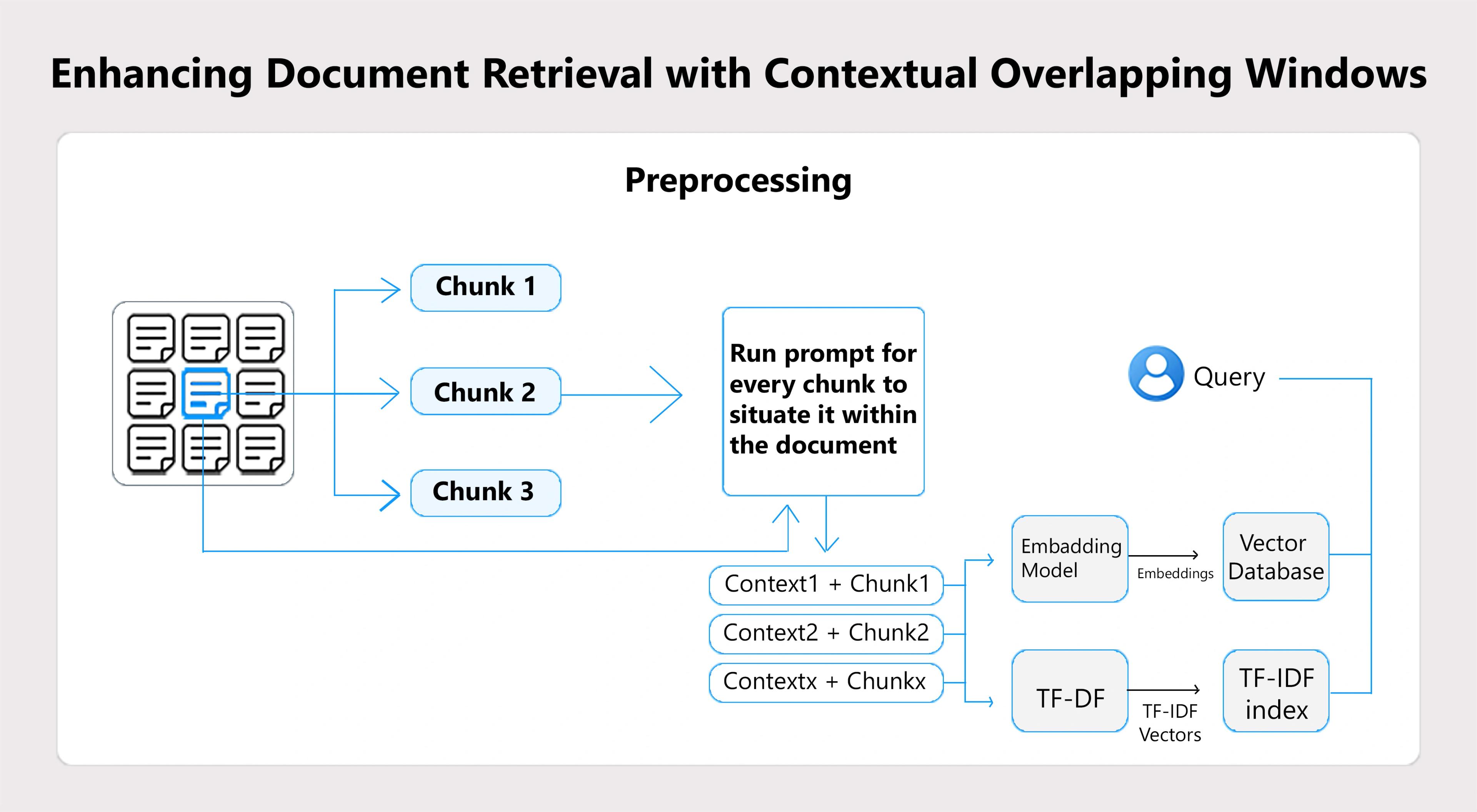Project Overview
This project focuses on enhancing document retrieval by incorporating contextually overlapping windows in a vector database. Traditional vector search methods often return isolated chunks of text that may lack sufficient context, making it harder to understand the information. This technique addresses this issue by adding surrounding context to the retrieved chunks, improving the coherence and completeness of the results.
The project involves PDF processing, which divides documents into manageable text chunks. These chunks are stored in a vector store using FAISS and OpenAI embeddings to facilitate fast retrieval. A custom retrieval function is then used to fetch relevant chunks and their surrounding context. The effectiveness of this approach is compared with standard retrieval methods, offering a more comprehensive and accurate search experience.
Prerequisite
- Familiarity with Python
- Knowledge of text chunking and contextual information retrieval
- Experience with Colab Notebooks for project development
- Basic understanding of document retrieval and vector databases,
- Libraries: Python, FAISS (for vector search and indexing), OpenAI embeddings (for text embeddings), NumPy, Pandas, PyPDF2, and LangChain.
- Basic knowledge of embedding generation and usage with FAISS.
Approach
The approach involves improving document retrieval by incorporating contextually overlapping windows. First, documents are processed using PDF extraction techniques like PyPDF2 to break them down into manageable text chunks. These chunks are then stored in a vector database using FAISS for efficient search and retrieval. To enhance the search results, OpenAI embeddings are used to generate vector representations of the text chunks, ensuring semantic accuracy. When a query is made, a custom retrieval function fetches the relevant text along with its surrounding context, creating a more comprehensive and coherent response. This method is compared against traditional retrieval techniques, highlighting improvements in context and results in completeness.
Workflow and Methodology
Workflow
- Extract text from PDFs using PDF processing libraries (e.g., PyPDF2)
- Divide the extracted text into smaller chunks for easier processing.
- Generate embeddings for each text chunk using OpenAI embeddings.
- Store the embeddings in a FAISS vector database for efficient searching.
- Create a custom retrieval function that retrieves text chunks along with their surrounding context.
- Compare results from standard retrieval and contextual retrieval to evaluate improvements in coherence and completeness.
Methodology
- Text Processing: Use PDF extraction to parse documents and convert them into text chunks.
- Embedding Generation: Apply OpenAI embeddings to generate vector representations of the text chunks.
- Vector Search: Store these embeddings in a FAISS database for fast retrieval based on similarity.
- Contextual Retrieval: Implement a custom retrieval function that fetches relevant chunks and includes their surrounding context to provide more complete answers.
- Evaluation: Compare the new method with traditional retrieval to assess contextual understanding and search accuracy improvements.
Data Collection and Preparation
Data Collection
The data used in this project consists of PDF documents called Climate_Change.pdf, which are stored in a specific directory. The PDF files contain textual information that is extracted and processed. The extraction process involves using libraries like PyPDF2 to pull out the text content from these documents.
Data Preparation Workflow:
- Extract text from PDFs using PyPDF2 or pdfplumber.
- Clean the text by removing unnecessary characters and formatting.
- Split the text into smaller chunks.
- Generate embeddings for each chunk using OpenAI embeddings.
- Store the embeddings in a FAISS vector database.
- Group chunks with surrounding context for more coherent retrieval.
- Validate the data for accuracy and correct embedding storage.
